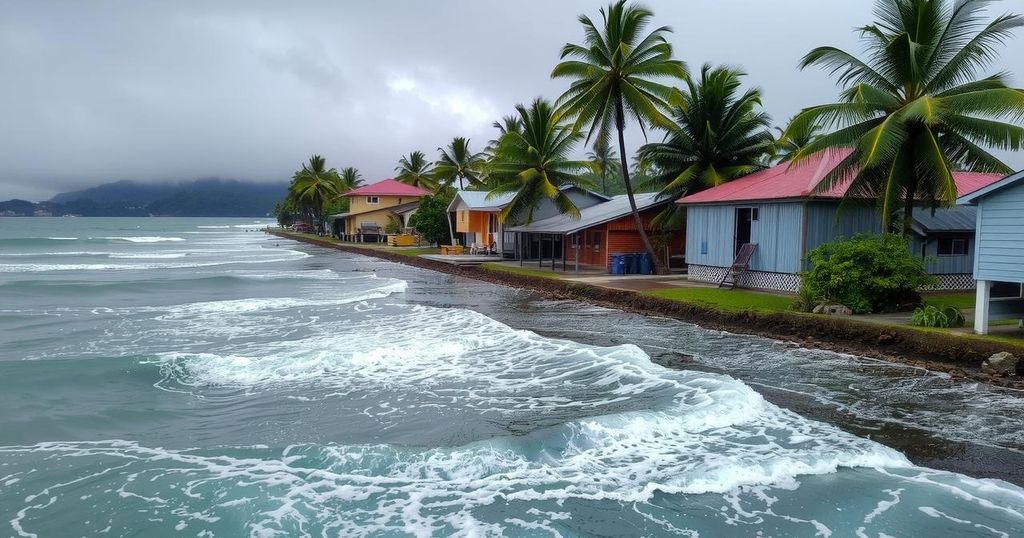Indian Ocean Islands Prepare for Cyclone Chido as Risks Escalate

The Indian Ocean islands of Comoros, Madagascar, and Mayotte are preparing for Cyclone Chido, with emergency measures in place as it approaches East Africa. The cyclone is expected to impact millions, prompting alerts across these regions. Historical data reveals an alarming trend of worsening cyclone intensity linked to climate change, raising concerns over potential flooding and disease outbreaks.
The Indian Ocean islands of Comoros, Madagascar and Mayotte are currently on high alert as they prepare for the arrival of Cyclone Chido, which is projected to impact Africa’s eastern coastline this weekend. In anticipation of severe weather, schools in Comoros have been closed and emergency responses initiated. The cyclone is expected to pass northern Madagascar before affecting Mayotte, which has been placed under a red alert by the French national weather service, indicating an imminent threat.
Authorities in Mozambique have also declared a red alert for their northern regions, where it is estimated that over 2 million individuals could be affected upon Chido’s landfall on the mainland, anticipated for early Sunday. The Mozambique National Meteorological Institute has warned of wind speeds reaching 200 kilometers per hour (approximately 124 mph). Moreover, the director of the National Emergency Operations Center highlighted the potential need for rescue services for 2.5 million people in Cabo Delgado and Nampula.
Madagascar has activated emergency plans, including warnings disseminated via mobile alerts and radio broadcasts, focusing on the northern Diana region, which is expected to bear the brunt of the cyclone. Authorities are providing essential supplies such as food, water pumps, and generators. In preparation for potential disasters, the French government is dispatching teams to Mayotte, along with emergency supplies.
The cyclone season in this region extends from December to March, and recent years have seen a spike in severity, attributed to climate change. Notably, previous cyclones like Idai and Freddy resulted in significant loss of life and extensive damage across several countries. Experts warn that Cyclone Chido could lead to dangerous flooding and subsequent health crises, including the spread of waterborne diseases.
The Indian Ocean region experiences a cyclone season that typically runs from December to March. This period has increasingly seen stronger storms, exacerbated by climate change. Previous cyclones, such as Idai in 2019 and Freddy in 2022, caused widespread devastation, resulting in significant fatalities and displacement. The increase in cyclone intensity poses serious risks to the safety and health of affected populations, including potential outbreaks of diseases such as cholera, malaria, and dengue fever, fueled by floodwaters.
In summary, as Cyclone Chido approaches, the islands of Comoros, Madagascar, and Mayotte are implementing emergency measures to mitigate the anticipated impact. The cyclone poses significant risks, particularly to the millions living in vulnerable areas of Mozambique and Madagascar. The ongoing cyclone season demands heightened awareness and preparedness to address the both immediate and long-term consequences of such natural disasters on public health and safety.
Original Source: abcnews.go.com






